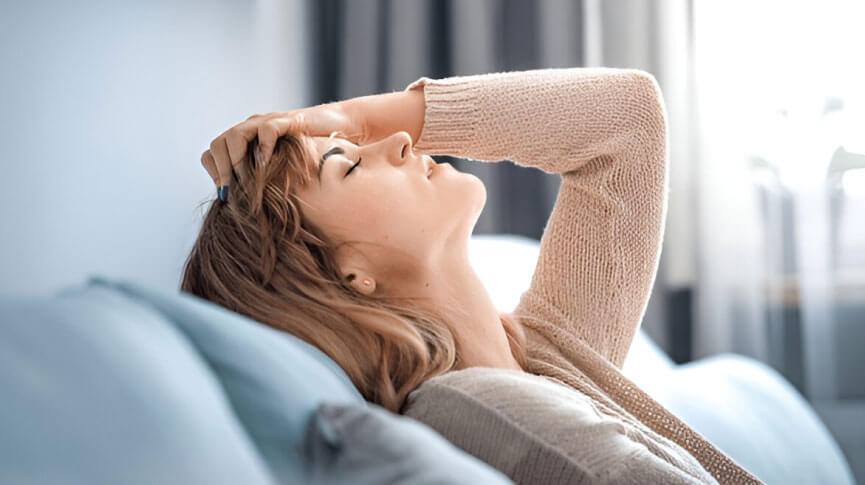
Hormonal imbalances happen when your body makes too much or too little of certain hormones like estrogen or testosterone. These changes can affect your energy, mood, and sex life. Visit our DOXXES store on SW Freeway/Chimney Rock to explore products that support hormone health and boost confidence.
What Is a Hormonal Imbalance?
A hormonal imbalance means your hormone levels are off—either too high or too low. This can happen with:
- Estrogen
- Progesterone
- Testosterone
- Thyroid hormones
Doctors may call them:
- Superficial shifts: Minor, temporary changes
- Systemic imbalances: Deeper health issues
- Provoked imbalances: Caused by medications or major stress
What Causes Hormonal Imbalances?
Emotional causes:
- Chronic stress
- Anxiety or unresolved trauma
- Tension in relationships
Physical causes:
- Autoimmune conditions
- Life stages like puberty, pregnancy, or menopause
- Pelvic floor issues or infections
Mind and body often work together. For example, stress can raise cortisol, which lowers desire and energy.
Signs and Triggers to Watch For
Real-life examples:
- Irregular periods with heavy bleeding
- Hot flashes or night sweats
- Low testosterone causing tiredness and low sex drive
- Mood swings due to thyroid changes
How to spot triggers:
- Keep a symptom journal or use an app
- Track changes in sleep, food, and stress
- Adjust routines or products and note what helps
Who Is Affected?
Everyone can experience hormone changes, but symptoms vary:
- Women: May notice problems around menstruation, pregnancy, or menopause
- Men: May experience low testosterone, fatigue, or sexual changes
- Trans and nonbinary individuals: May face unique hormonal and emotional shifts
Hormones affect not just the body—but how we feel about ourselves and our partners.
How a Sex Therapist Can Support You
Therapists can help by:
- Reviewing your full sexual and emotional history
- Identifying pain triggers, such as “abdominal pain after sex”
- Coordinating with specialists to explore hormone testing or treatment
Ways to Cope and Treat Hormonal Imbalances
Emotional support:
- Counseling to reduce stress and anxiety
- Cognitive-behavioral therapy (CBT) to change thought patterns
- Couples therapy for intimacy and trust
Physical support:
- Hormone therapy (like bioidentical hormones) under medical guidance
- Natural supplements—check with your provider first
- Some people find relief through pelvic floor therapy or lifestyle changes like better sleep and nutrition

How DOXXES.Love Can Help
We offer tools designed for people managing hormone changes:
- Water-based lubricants for dryness
- Pelvic floor trainers for better muscle tone
- Vibrators to increase comfort and sensitivity
- Prostate massagers to support balance and pleasure
Each item comes with easy instructions to use safely and comfortably.
Talking About Hormonal Changes
- Start with “I” statements like “I feel concerned when I’m not myself”
- Avoid blame and keep the conversation supportive
- Pick a calm, private moment to talk
- Read and learn about hormonal health together
- Don’t wait—see a professional if symptoms affect your well-being
Visit Our DOXXES Store
Our DOXXES store on SW Freeway/Chimney Rock offers a discreet, supportive space to explore wellness tools. Let our staff guide you to what feels best for your body and needs.
Conclusion
Hormones shape how you feel, think, and connect. By learning the signs, speaking openly, and using supportive tools, you can feel better in your body and relationships. For help along the way, visit DOXXES on SW Freeway/Chimney Rock.
FAQs
- What are hormonal imbalances?
When hormone levels like estrogen, testosterone, or thyroid hormones are too high or too low. - Can they affect my sex life?
Yes. They can cause low libido, vaginal dryness, fatigue, and emotional changes. - Who’s most at risk?
People in menopause or andropause, and those with thyroid or adrenal issues. - Can I find support products at SW Freeway / Chimney Rock?
Yes! DOXXES offers hormone-friendly lubricants, supplements, and wellness tools. - What are signs of low estrogen?
Hot flashes, vaginal dryness, mood swings, and trouble sleeping. - What happens with low testosterone?
You may feel tired, moody, or have trouble with sex drive and performance. - Can stress mess with hormones?
Definitely. Long-term stress can disrupt cortisol and other hormone levels. - How are imbalances diagnosed?
Through blood tests and a full health review by your provider. - Do supplements help?
Some do—but always check with your doctor before starting one. - Is hormone therapy safe?
For many people, yes—especially when monitored and tailored to your needs.
